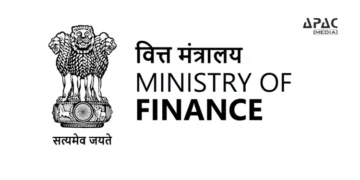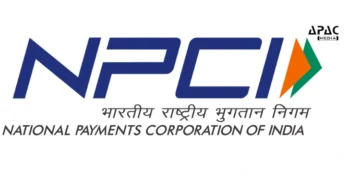Employee wellness, flexible work models and technology adoption have become defining pillars of modern workplace transformation, shaping how organisations attract, retain and engage talent in a rapidly evolving business landscape. Shweta Rathor, AVP-HR, Ajmera Realty Infra India Limited, shares with Sugandh Bahl Vij, Assistant Editor, CXO Media & APAC Media, how Ajmera Realty is integrating well-being, collaboration and future-focused reskilling into its people strategy to build a resilient, innovative and employee-centric organisation.
Employee wellness is trending across industries. How is your organisation supporting employee health, engagement, and overall satisfaction in the workspace?
In Ajmera Realty, the well-being of employees is an organic assurance of health, engagement, and growth. Through the regular health checks, fitness is also promoted through yoga, meditation, lifestyle exercises and mental health treatment. Engagement is facilitated through open houses, reward programs, and celebrations that foster a sense of belongingness. Continuous learning, leadership development, and technology refreshments are also facilitated to foster career growth. Flexible work practices also facilitate work-life balance.
Hybrid and flexible work models are becoming the norm. How do you keep employees motivated and connected, whether they’re in-office or remote?
Groundwork, project management, and site management are the core of our business, an on-site work style is the core. Though as much as we work from offices and workplaces, we are keen to bring workers together and live in harmony through an open culture of reward, collaboration. Town halls, inter-functional communications, and fellowship activities regularly ensure that functions collaborate. We also concentrate on career development, wellness programs and an open-door policy in order to maintain high morale.
With AI tools and automation shaping workflows, how are you preparing employees to adapt and collaborate effectively with technology?
We view automation and AI as enablers that are capable of transforming the type of work from the outset, right through to project planning and customer interaction. To equip our teams for transformation, we designed a range of intense reskilling and training programs such as AI masterclasses, experiential bootcamps, and online learning. These allow the staff to acquire experiential learning exposure to AI solutions implemented in the real estate industry and build problem-solving and productivity. Through ongoing technology and learning, we are future-proofing our people to work with AI and stay future-ready and innovation-led.
Creative collaboration is key in modern workplaces. What strategies do you use to encourage teamwork and innovation among employees?
Collaboration is the only manner in which we work as a consequence of the multi-disciplinary nature of property projects. We encourage collaboration by being receptive to cross-functional project teams, brainstorming where ideas are swapped, and open forum discussion where individuals feel comfortable sharing between departments. Innovation is fostered by giving employees the ability to test new ideas and present alternative viewpoints and solutions which extend beyond their professional functions and build solutions outside functional silos. Rewards for inventive effort come from recognition programs, design-thinking and learning forums that create new ideas, and by creating a culture of trust and shared purpose, we have engaged and inspired employees to innovate and collaborate—winning in workplace connection and in the communities we create.
Gen Z brings new expectations around technology, wellness, and flexibility. How are you adapting your work culture to meet these changing workforce demands?
We feel that Gen Z demands a digitally native, mission-centric, and well-being-focused workplace culture. While we bridge these gaps, we are building a stronger culture with stronger applications of technology, AI-powered solutions, and virtual learning environments. We are putting well-being and health at the top of our agenda in mental well-being, fitness, and whole-body activities. We have a lot of activity on site by the nature of what we do but provide flexibility through shared ways of working, open communication, and career growth. By innovating, learning ever more, and being inclusive, we are building a culture that enables, engages, and future-proofs Gen Z.
Modern offices are experimenting with flexible layouts and experience-driven spaces. How are you designing work environments that inspire creativity and collaboration without compromising comfort?
For us at Ajmera Realty, the building itself needs to reflect our innovative and progressive thinking processes that we apply in our operations. Our office spaces are open, flexible, and unorthodoxly designed so that people may interact with each other without sacrificing comfort at an individual scale. Availability of natural light, spacious seating areas, and subtle technology integration further enhance productivity and convenience. Through the fusion of function with experience-based design, we build spaces which inspire collaboration, generate ideas, and build community, a reason for our people to commute around the office every day.
Digital and immersive experiences, like VR/AR, are trending in client engagement. How do you think these technologies influence employee learning and performance?
Virtual and Augmented Reality appear to us as great opportunities which can actually revolutionise staff training as well as customer experience. Since we learn through them ourselves, we also hope they would make us better at visualising projects through the eye of our mind, replicating conditions in the field, and operate more accurately. They will accelerate learning, enable them to grasp design better, and make better decisions in the field for our field workers. As we continue strengthening our virtual biceps, VR/AR will be the next step towards achieving performance and innovation by function.
Employee trust and privacy are crucial as workplaces increasingly use data for planning and efficiency. How do you strike the right balance?
We use data for leverage as a tool for enhancing organisational performance and work life. First, we prioritise trust and we fully transparently open up the processes in the way information is gathered and applied—workplace design, measurement of productivity, or employee engagement programs. Regulations on privacy, regulations, and strict access arrangements all work together to keep information up. Perhaps most of all, we combine analysis and empathy: we don’t base judgments on facts and figures, but on people in context as well. So we can act more powerfully without loss of trust, respect, and open culture.
Looking forward, which workplace innovations or trends — like smart buildings, ESG-driven initiatives, or digital collaboration tools — do you think will most impact employee experience?
Three interrelated trends will impact employee experiences most tomorrow.
- Smart buildings, smart HVAC and IoT sensors will make on-site workplaces safer, more comfortable, and less disruptive, improving productivity and attendance.
- ESG-infused operations, clean materials, good design, green space, and community initiatives instil pride, purpose, and better physical health.
- Collaboration digital tools — BIM, cloud platforms, mobile field apps, and AI-driven analytics accelerate decision-making, lower rework, and upskill teams so that on-site and office processes unite. With open privacy protection and ongoing training, these are trends that will lead to greater engagement, productivity, and retention.
The post Wellness, Flexibility and Technology are Redefining Work Culture: Shweta Rathor, AVP- HR, Ajmera Realty Infra India Limited first appeared on .


























































Discussion about this post